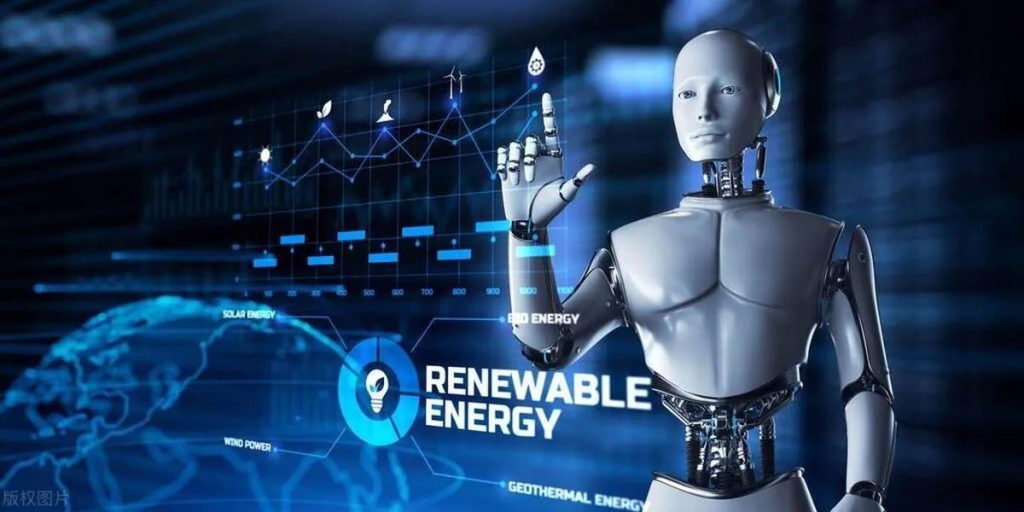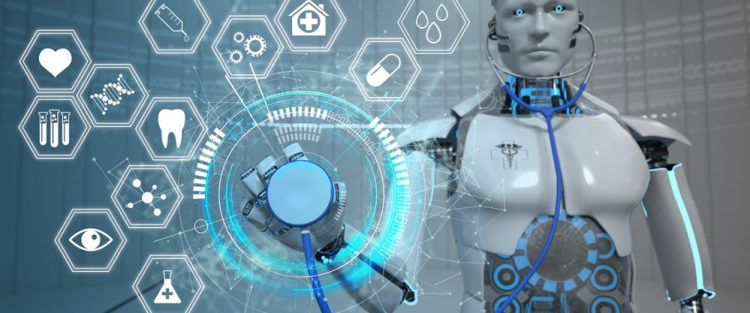Introduction
As the world shifts towards sustainability and renewable energy, the need for efficient energy management has never been more critical. Energy costs are rising, and environmental concerns are at the forefront of global discussions. For businesses and households alike, managing energy consumption is essential not only for cost reduction but also for minimizing environmental impact.
Enter Artificial Intelligence (AI)—a powerful tool that is revolutionizing energy management. AI enables businesses and consumers to optimize energy usage, reduce costs, and make smarter decisions based on predictive analytics and real-time data. Through AI, energy systems can become smarter, more responsive, and more sustainable.
This article delves into how AI is transforming energy management, with a particular focus on smart forecasting—a key capability that allows for the prediction of energy needs, fluctuations in consumption, and cost-saving opportunities. We will explore how AI-driven tools and platforms are optimizing energy consumption in various sectors, provide real-world examples, and discuss the broader implications for the energy industry.
Section 1: The Need for Advanced Energy Management
1.1 The Current State of Energy Consumption
In many parts of the world, energy management is still based on traditional methods such as simple timers, manual adjustments, and historical data analysis. While these practices have worked to some extent, they often fall short in today’s dynamic energy landscape.
- Rising Energy Costs: The price of energy—especially electricity—has been climbing in many regions, putting pressure on businesses and consumers.
- Environmental Impact: The energy sector remains one of the largest contributors to greenhouse gas emissions, with much of the world’s energy still derived from fossil fuels.
- Unpredictability: With fluctuations in demand, weather, and the integration of renewable energy sources like solar and wind, predicting energy needs has become more complex.
1.2 The Need for AI in Energy Management
AI comes into play as a solution to these challenges. By leveraging vast amounts of data, AI can predict energy consumption patterns, identify inefficiencies, and optimize energy use to reduce waste. This not only helps in managing costs but also contributes to sustainability goals.
The key areas where AI can have an impact include:
- Demand Forecasting: Predicting future energy consumption based on historical data and external factors.
- Optimization Algorithms: AI can adjust energy usage dynamically, depending on demand, cost, and supply.
- Smart Grids: AI plays a central role in the functioning of smart grids, optimizing the distribution and consumption of electricity.
- Renewable Energy Integration: AI helps integrate renewable energy sources by predicting fluctuations and ensuring that energy use matches supply.
Section 2: How AI Optimizes Energy Consumption through Smart Forecasting
2.1 Smart Forecasting Explained
Smart forecasting is the process of using AI-driven models to predict future energy demand, identify patterns, and make recommendations for reducing consumption. AI algorithms analyze historical data, real-time inputs, and external factors (e.g., weather patterns, market trends) to make accurate predictions.
How Smart Forecasting Works:
- Data Collection: AI systems collect data from a wide range of sources, including smart meters, sensors, weather forecasts, and electricity consumption history.
- Data Processing: AI algorithms process the data to identify patterns and correlations between different variables.
- Prediction: Using machine learning models, AI can predict future energy consumption, including peak demand periods.
- Actionable Insights: AI provides actionable recommendations on how to adjust energy usage, for example, recommending when to switch off equipment or use energy-intensive devices.
2.2 Case Study: AI in Smart Homes
A typical example of AI-driven smart forecasting is seen in smart homes. These homes use AI to learn the energy usage habits of the occupants and adjust consumption accordingly.
The Challenge:
In a standard household, energy consumption is relatively unpredictable and inefficient. Common energy-hogging appliances (like heating, cooling, and large kitchen appliances) can lead to high costs and wasted energy.
The Solution:
AI-powered smart home systems, like those from Google Nest or Amazon Alexa, monitor energy use in real-time, anticipate future needs based on weather forecasts, and recommend energy-saving strategies. The system can also automatically adjust heating or cooling settings, control lights, and optimize the operation of appliances.
Results and Impact:
- Energy Savings: Households using AI-driven smart systems have seen energy savings of up to 30%.
- Increased Efficiency: AI makes real-time adjustments to energy consumption based on demand, ensuring efficiency throughout the day.
- Cost Reduction: Users report lower energy bills due to optimized usage.
Section 3: AI in Commercial and Industrial Energy Management
3.1 Energy Management in Large-Scale Industries
In industrial settings, AI has become a powerful tool for improving energy management. Manufacturing plants, office buildings, and large-scale operations can use AI to reduce energy consumption without compromising productivity.
The Challenge:
Industries often deal with fluctuating energy needs, especially in high-demand sectors like manufacturing, where machines operate at different intensities throughout the day.
The Solution:
AI solutions like Siemens’ Energy Management System and Schneider Electric’s EcoStruxure use predictive algorithms to manage and optimize energy consumption across industrial facilities. These systems can forecast energy demand, adjust equipment settings, and even control the supply of renewable energy in real-time.
Results and Impact:
- Energy Efficiency: Businesses can reduce energy waste through dynamic adjustments, optimizing the operation of equipment based on need.
- Sustainability Goals: AI helps organizations meet their sustainability goals by minimizing resource use.
- Cost Savings: Industrial facilities see reductions in energy costs by more than 20% through AI-driven optimization.
3.2 Case Study: AI in Renewable Energy Forecasting
Renewable energy sources like solar and wind are intermittent, making energy forecasting crucial for efficient management. AI is helping energy companies predict energy generation from these sources.
The Challenge:
The variable nature of renewable energy generation—especially solar and wind—creates challenges in predicting how much power will be available. This can lead to reliance on fossil fuels to make up the gap.
The Solution:
AI platforms like DeepMind and Autogrid are now being used by utilities to predict renewable energy generation. By analyzing weather patterns, historical energy data, and grid conditions, AI can forecast energy generation from solar panels and wind turbines, allowing grid operators to balance renewable energy supply with demand.
Results and Impact:
- Increased Renewable Integration: AI improves the integration of renewable energy into the grid, reducing reliance on fossil fuels.
- Cost Savings: By predicting fluctuations in renewable energy, AI allows utilities to make better purchasing decisions, reducing operational costs.
- Environmental Impact: More efficient use of renewable energy reduces carbon emissions and helps meet sustainability targets.

Section 4: AI and Smart Grids
4.1 What are Smart Grids?
Smart grids are modernized electrical grids that use AI, sensors, and digital communication to monitor and manage the distribution of electricity more efficiently. They allow for real-time adjustments to energy supply and demand, enabling optimized energy consumption.
How AI Works with Smart Grids:
- Demand Response: AI systems help utilities monitor energy demand and adjust the distribution of energy accordingly.
- Real-Time Monitoring: Smart grids powered by AI monitor voltage, load, and other critical parameters in real-time.
- Energy Storage Optimization: AI helps manage energy storage systems, such as batteries, by predicting when stored energy will be needed.
4.2 Case Study: AI-Driven Smart Grids in Japan
In Japan, AI-driven smart grids are being used to manage the electricity needs of households and businesses. These grids use real-time data from homes, businesses, and electric vehicles to optimize energy distribution.
The Challenge:
Japan’s reliance on renewable energy sources, particularly solar, has posed challenges in balancing energy demand and supply.
The Solution:
AI systems use historical data, weather predictions, and real-time consumption information to dynamically control the flow of electricity. By predicting energy demand and production from renewable sources, AI ensures a more balanced and efficient distribution of electricity.
Results and Impact:
- Cost Reduction: Smart grids reduce the need for energy imports and lower operational costs for utility companies.
- Better Grid Stability: AI ensures a more stable and efficient grid, even during periods of high renewable energy generation.
- Sustainability: The use of AI in smart grids reduces carbon footprints and supports Japan’s renewable energy goals.
Section 5: Challenges and Future Prospects
5.1 Barriers to AI Adoption in Energy Management
Despite the potential of AI, there are several barriers to its widespread adoption in energy management:
- Initial Investment: The cost of implementing AI systems and infrastructure can be high, especially for small businesses.
- Data Privacy and Security: With the collection of vast amounts of data, concerns around privacy and security must be addressed.
- Integration Complexity: Many legacy energy management systems may not easily integrate with modern AI technologies.
5.2 The Future of AI in Energy Management
The future of AI in energy management looks bright. As AI technologies continue to evolve, we expect to see even greater integration with renewable energy sources, more intelligent grid systems, and deeper levels of automation in energy consumption management.
Conclusion
Artificial intelligence is rapidly changing how we approach energy management. From optimizing consumption in smart homes to managing complex industrial energy needs and integrating renewable energy into the grid, AI is playing a key role in transforming the energy sector. With the help of smart forecasting, AI-driven systems can predict energy needs, optimize usage, and reduce costs.
As AI technologies continue to advance, the potential for energy management will expand even further. The future promises more efficient, sustainable, and cost-effective energy systems, driving a new era of innovation in the global energy sector.











































